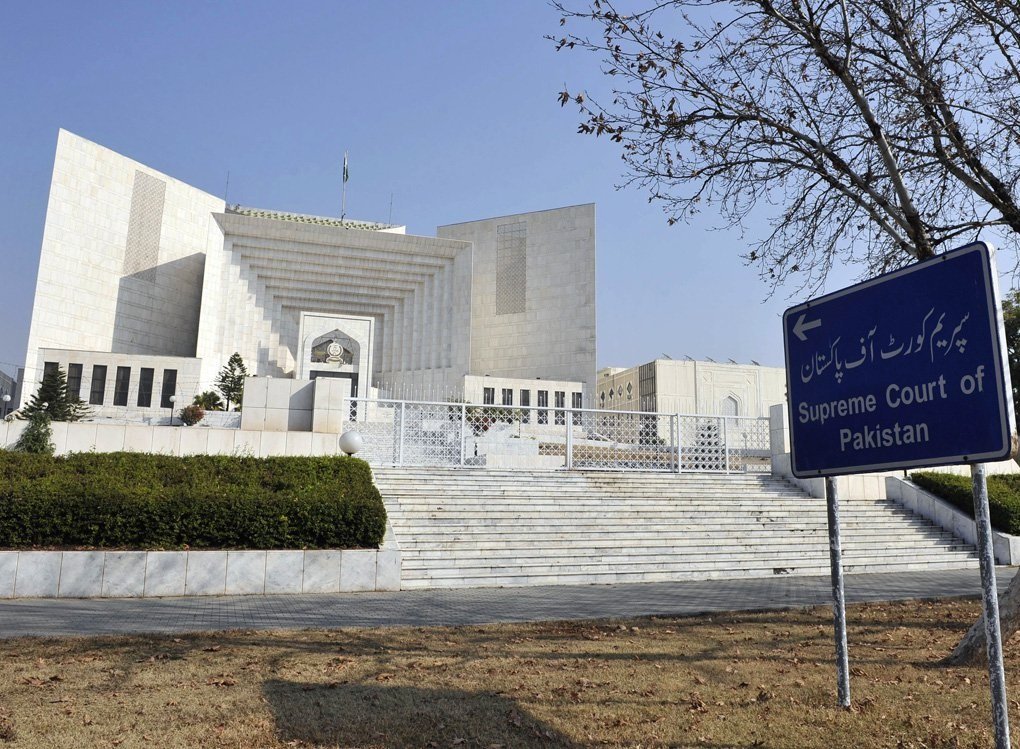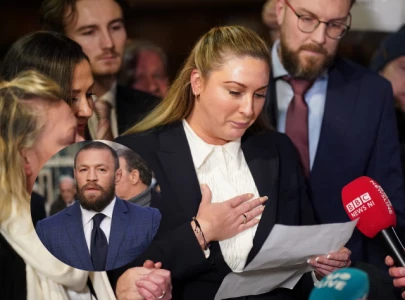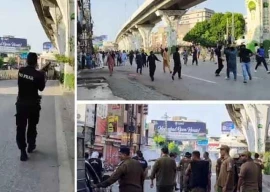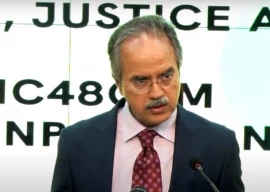
A larger bench of the Supreme Court on Tuesday asked amici curiae to assist it on the questions as to why mentally-ill prisoners could not be executed and whether they could be hanged if they recover after treatment.
The five-member bench, headed by Justice Manzoor Ahmad Malik, was hearing clubbed petitions of Kanizan Bibi, Imdad Ali and Ghulam Abbas, who have spent 30, 18 and 14 years, respectively, on death row, while exhibiting acute symptoms of mental illness.
During the hearing, a medical board constituted by the apex court submitted its reports, regarding two mentally-ill death-row prisoners, declaring both the inmates as schizophrenic patients.
In September this year, the court ordered a fresh medical examination of Bibi and Abbas and had appointed Prof Dr Mowadat Hussain Rana and Advocate Supreme Court Haider Rasul Mirza as amici curiae.
Additional Advocate General Punjab Qasim Chohan submitted the medical board report before the larger bench related to two prisoners –Bibi and Abbas. Regarding Bibi’s illness, the report said that it had been assessed by penal that she was having mutism (not speaking), unresponsive to commands, lack of eye contact, talking to herself, lack of warmth and socially inappropriate smile.
The report concludes that she has been diagnosed with having a severe lifelong mental illness “schizophrenia” and she would need lifelong treatment. It added That psychiatric tools could not be applied because of her mental status.
About Abbas’s illness, the report said that he was evaluated on October 8 and subsequently he was admitted to the Punjab Institute of Mental Health, Lahore, for two weeks for detailed evaluation. On the basis of detailed psychiatric evaluation, Abbas appeared to be suffering from schizophrenia and intellectual impairment, the report added.
It was recommended that Ghulam Abbas may be kept admitted for psychiatric observations and he should be provided appropriate psychiatric treatment and should be reassessed after six months.
During an earlier medical review, Imdad had already been declared as a patient suffering from schizophrenia. One member of the bench noted that Imdad was not given counsel of his choice, rather a lawyer was appointed by the state.
The lawyer never met the client and was not even given time to prepare, he said adding that it was unfair, as in Imdad’s case it was a matter of life and death. The court asked the amici curiae to submit their recommendations at the next date of hearing on January 4, 2021.
The bench also asked the amici curiae to assist as to why mentally-ill prisoners could not be executed. Likewise, it asked if they recover after treatment then could they be hanged.
In March last year, another severely-ill death-row prisoner died in a hospital due to multiple ailments. Diagnosed with paranoid schizophrenia by jail authorities in 2008, Khizar Hayat, 56, had become severely anaemic and hypotensive. After spending 16 long years on death row, he died at Jinnah Hospital Lahore where he was admitted after he stopped taking food and medication.
Bibi, a middle-aged woman diagnosed with paranoid schizophrenia, was sentenced to death in 1991. According to her family, she was arrested when she was just 16 years old. Due to the trauma she has endured, she hasn’t spoken a word in several years.
Abbas was arrested in 2004 and has since been prescribed powerful anti-psychotic medication, requiring prompt medical attention. Imdad Ali, 52, was earlier termed a “treatment-resistant case” and has spent many years in solitary confinement.
Pakistan is a signatory to international treaties and conventions prohibiting the execution of mentally-ill prisoners, including the International Covenant on Civil and Political Rights (ICCPR) and Convention Against Torture (CAT).
Ali Haider Habib, spokesperson for the Justice Project Pakistan said “As noted by the honourable Supreme Court judges, Kanizan, Imdad Ali and Abbas all severely ill and could never meaningfully take part in the trial or communicate with their lawyers.”
He added: “To put them to death under these circumstances would be a travesty of justice. We are hopeful the Supreme Court will set a precedent that will ensure that the voices of these minds fraught with mental illness are not silenced by the very law that swears to protect them.”


















COMMENTS
Comments are moderated and generally will be posted if they are on-topic and not abusive.
For more information, please see our Comments FAQ